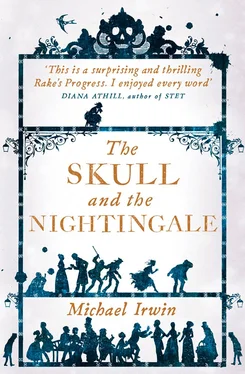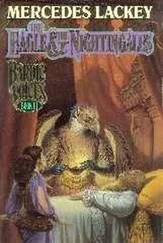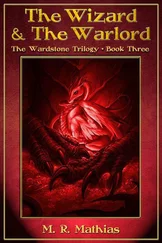1 ...8 9 10 12 13 14 ...23 I’m wedded to a waspish wife
Who shames the name of woman:
She’s sharper than a surgeon’s knife
And sourer than a lemon.
The duet being warmly received, Crocker saluted me with a slap on the shoulders that all but knocked me down, convincing me that his physical strength is proportioned to his size. We chatted for some minutes, and I found him as nimble in mind as he is ponderous in body. He asked me about myself with seemingly unfeigned interest, and once or twice I surprised him into a loud laugh. I was pleased to have won his favour this far, since it seemed that here was a man whose eccentricity might put me in the way of some odd experiences. That expectation was to be gratified sooner than I could have anticipated.
Perhaps half an hour after our duet the door crashed open with a suddenness that checked all conversation. In strode the tall Captain Derby, his cheeks now crimson and his wig awry. It seemed that this invasion was a freak of conduct prompted by drink, because he had broken free of a knot of companions who stopped short in the doorway. Derby took up a stance facing Crocker, and spoke out in an insolent voice: ‘Mr Crocker, I come to admire your person. I am told that you have the biggest belly in London.’
There was silence for a moment, before Crocker gave a cool reply.
‘That may be so, sir. And I take it that you have the smallest brain.’
Whether Derby’s reputation was current in London I had no idea: perhaps Crocker took him to be merely an oaf; but I knew what must follow. The intruder grinned, as in a situation familiar to him.
‘It seems that you do not know me, Mr Blubber. I brook no such impudence.’
He crashed his fist on the table. ‘I shall require satisfaction.’
Mr Crocker, undisturbed, responded affably: ‘Surely, sir, a duel could afford you very little satisfaction, since my body offers so large a target to ball or blade.’
The captain’s reddened face twisted into a sneer. ‘Since you are too fat to conduct yourself like a gentleman—’
As he spoke, his hand reached for a glass of punch. I knew on the instant that he meant to throw the contents over Crocker; but in that same instant the intention was forestalled. Francis Pike, the lean gentleman mentioned above, leaped upon Derby. He moved with such speed that I could not see exactly what he did; but it seemed that he simultaneously dashed his head into Derby’s face and felled him. In a trice he was astride the man, and holding a knife to his nostrils. Several hands went to a sword-hilt, but no further move was made since Pike was so clearly master of the situation. He addressed Derby, who appeared to be half dazed, in a level, even polite, voice: ‘I recommend that you withdraw, sir. If you cause further disturbance I shall alter your face with this knife.’
He stood up and stepped back, quite imperturbable, although with some of his antagonist’s blood on his wig. Derby could hardly have had another such experience in his career as rake and bully, and I did not know what his reaction would be. He clambered slowly to his feet, uncertain in balance and bleeding from nose and mouth. No one moved to help him. Amid a general silence he limped from the room without a word, avoiding every eye. Hardly had conversation burst out once more than it was stilled a second time as one of Derby’s earlier companions marched in and, although clearly drunk, made a creditable bow in the general direction of Crocker.
‘I apologize to you, sir,’ he said, ‘and to the company, for the conduct of Captain Derby. He is lately returned from abroad and does not know the customs of this house.’
‘Thank you, sir,’ replied Crocker, who had not turned a hair during the entire proceeding. ‘I will regard the episode as closed.’
With that we returned to our punch and our chatter. Pike became as unobtrusive as he had been before and no one made reference to his intervention.
I was eager to learn more about the conventions governing these events. In particular I wished to know how it was that the resourceful Mr Pike had licence to disable a gentleman whose conduct was objectionable. Little Horn was convulsed by what had occurred; but I could draw nothing from him or Latimer beyond the statement that Mr Crocker’s entourage was governed by its own laws.
Soon that entourage rose to take its leave. Mr Crocker paused by me to say that he hoped we would become better acquainted and sing together again.
I will be happy to maintain the contact. There is striking singularity and force in this huge gentleman. I am sure that he will feature again in our correspondence.
I remain, &c.
Having written three times to my godfather I was anxious for a reply. During my years abroad he had sent me no more than occasional acknowledgements of the long letters I had written. He said enough to show that he had read my words attentively, but offered no news of his own. This practice had suited me at the time, but I now looked for something more. I had offered Mr Gilbert several kinds of matter, and needed to know where I had come closest to meeting his expectations. I resolved to send one further message of safely general description and then remain silent until I had received a response:
My dear Godfather,
Here is a brief epistle on a single theme. On Monday last, in the garb of a tradesman, I undertook my longest expedition so far, beyond Tower Hill and the rotting-fish stench of Billingsgate to the docks, wharves and warehouses of Wapping. Hereabouts one sees an astonishing sight: the Thames bristles with the masts of a thousand merchant ships of every size and condition. How the movements of these vessels and the unloading of their cargo are overseen and controlled I cannot conceive. Yet somehow order is derived from this chaos.
The riverside quarter seethes, correspondingly, with activity as relentlessly purposeful as that of bees or ants. To walk and watch here is to apprehend by instant conviction what everyone knows as a general truth – that the Thames is the vital tap-root of our capital city. If the mouth of the river were to be blockaded London would shrivel and decay like a dying tree. Through this channel the city takes in the produce of the whole known world – foodstuffs, fabrics, gold, diamonds, timber and stone – to be adapted and dispersed in accordance with its own needs and practices.
In the country – in your own Worcestershire – there is a familiar annual progress as nature’s energies erupt from the earth – for example in the form of grass to be translated by farm animals into meat, milk, wool and leather. In London such rhythms are half forgotten: an insatiable city gulps down an unending variety of goods from the ends of the earth.
It is a mighty undertaking and a mighty spectacle. However, this trading has a darker side. The river is no longer the silver ribbon of poetry, but a turbid black-brown stream, the water thickened with filth. It is to be hoped, but also to be doubted, that the copious sewage of the city flows out to the open sea as surely and regularly as the merchant ships sail in. When the tide retreats the river-banks are seen to be strewn with every sort of civic detritus from sodden rags, bottles and wood-fragments to animal carcasses.
On shore, in the warehouses and counting-houses, commerce is visible as a living thing. Goods are translated into guineas, and guineas into goods – a reciprocal exchange with the life-sustaining regularity of a heartbeat. Regrettably, however, the corporal metaphor does not end there. The vitalizing activity generates refuse as the river itself does. One sees rats and beggars searching through the rubbish for leavings to devour. But more dangerous creatures haunt these streets and alleys, parasites on trade: smugglers, pilferers and robbers. The district is a world in itself, and a perilous world, where one must be perpetually on guard. But it excited me: I must learn more about it.
Читать дальше












